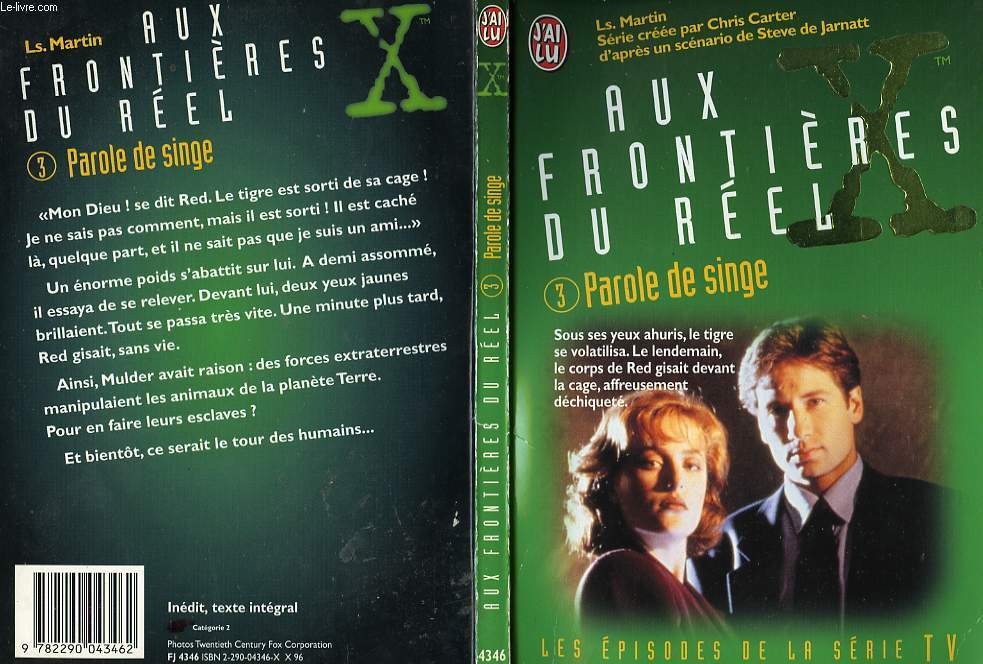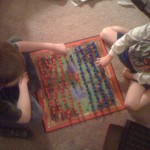 Social Studies
Social Studies  9 Comments
9 Comments How Not to Be a Fan
I’ve been open about parts of my identity on this blog that I haven’t felt comfortable “coming out” about almost anywhere else in my life, certainly not all at the same time. And everyone’s been so wonderfully welcoming and encouraging–you’re only making my general lack of brain filter worse! But what I’m about to admit may bring down the flaming hordes of trolls upon me in force.
I’m not sure how to say this, so I’ll just come right out with it (like taking off a band-aid, right?)…
I don’t get fandom. I utterly fail to understand it, on both individual and sociological levels. I am a Bad Fan.
What do I mean by “fandom”? I’m talking about that state of being in which a person enjoys spending time thinking, talking, reading, gathering, and making things about a particular piece of intellectual property, beyond just the time spent engaging with that medium. Those properties might include books, movies, music, sports, collectors’ items, games (video and otherwise), crafts, hobbies, or pastimes.
I truly believe in the broadest, most inclusive definition of ideas such as “fan” and “geek,” and I think the cultural behaviors that characterize traditional “geek culture” appear in a lot more “non-geeky” domains than any of those enthusiasts would expect to find. I also don’t judge among the various sources or expressions of fandom–I’m an equalist in this, as in just about everything else. Don’t try to tell me someone’s doing it wrong, or that something doesn’t “really count.” That just doesn’t hold water with me.
Of course, this is not to say I don’t enjoy and get enthusiastic about things that give me intellectual, creative, or aesthetic pleasure. I clearly do–I’ve enthused about books and music and movies and games and a dozen other things, sometimes with the fervor of a revival-tent preacher. But there’s an uncloseable distance between where I am and the distant shore of fandom.

I love what these ladies created. I even know some of them. And I’d proudly wear one of these costumes. But I can’t imagine ever making one myself.
I am fundamentally boggled by fan behaviors. I don’t understand re-watching or re-reading for the purpose of picking apart, or putting together, or harvesting quotes, or answering questions. I’ve never felt the urge to search or contribute to a wiki, beyond the most basic of research needs. I probably wouldn’t have the patience to wait for hours on end for the chance to see someone I admire. I can’t imagine following a band, performer, author, or artist from tour date to tour date. If I have the occasion to meet one of the people or groups I truly enjoy, I get a little fluttery but I’m conversationally functional, and I’m interested in them as people, not as characters or icons. I love dressing up for the sake of dressing up, but I could never conscience spending the dozens of hours and hundreds (if not thousands!) of dollars it takes to make a quality cosplay costume. Even if I could, there’s no one person I identify with so strongly for whom I’d be willing to pass myself off as a decent representation (this also has a lot to do with the absence of plus-size role archetypes, and my unwillingness to be a “fat” so-and-so).

Like this, but much, much simpler
All of this makes me feel like I’m carrying a shameful secret when someone hails me as a geek. A big circle of the geeky Venn diagram overlaps with the fan circle, and geeks are often graded on their proofs of fan-level devotion. Like any outsider, I have ways of “passing.” I have an excellent memory, which helps, but nothing like my Darling Husband’s capacity for encyclopedic knowledge available for immediate recall. And, more importantly, I empathize and enthuse well. If you’re excited about something you’re sharing, I can be excited for you and with you, and for most people, that’s all the engagement they’re really looking for when they share their fandom. But I also use my abilities to divert conversation from minutiae I know/care nothing for, and when that fails, my considerable skill at turning into a mirror.
Occasionally, this also makes me a Bad Friend. People hear that Jim Butcher introduced me to the Darling Husband, and they immediately launch into deep machinations within the Dresden universe, leaving me far behind. I’ve played some of the games my friends have written or designed, but there are many more I’ve never had the pleasure of enjoying–hell, I haven’t even played Marvel Heroic Roleplaying yet. Many more of these paradoxes litter the landscape of my relationships, and they don’t mean a thing for my dedication to those loved ones. When they need me or something I can do to brighten their day or lighten their load, I am all in. But they’ll have to settle for a good friend, because I can’t be a good fan.
And this must also mean I’m a Bad Autistic. Aren’t all autistics supposed to perseverate, or focus to an uncommon extent on a very specific thing, to the exclusion of everything else? I certainly did so to a greater extent as a kid–I had books and books about the First Ladies and American History, and my very own Presidents of the United States trashcan. But there was never a world I fell into that I couldn’t fall right back out of when something else grabbed my interest. And I always preferred to make up my own stories and characters in my favorite settings, rather than retread the same classics over and over.
I’m not waiting for that evangelical moment, when I find something that “finally” turns me into a full-fledged fan. I don’t think it’s going to happen. If it hasn’t already, with the abundance of amazing media to which I’ve been exposed in my life, it seems unlikely that something so radically new will come along to change that. And most of the time, I’m not even looking for that experience. But I do steam up the window glass sometimes, peering in at all the people who seem to be getting so much more fulfillment from the things I merely enjoy. As I used to (and sometimes still) feel about the LGBT community, I’m a strong, vociferous ally and advocate to fandom, but I often feel I’m missing some extra dimension in life because of these limits to my senses, boundaries, or imagination.
So here I sit, on this awkward fence. I speak the language of fans, and I understand and appreciate their culture, but I can never fully participate. I’m far from a “fan widow”–I don’t reject or feel left behind by the enthusiasms of my friends and family. But I can’t understand prioritizing those things above more basic obligations and engagements. I can’t even really explain what I mean, and I’m worried this sounds condescending or judgmental. (If I have come off this way, please accept my apology and my vow that I intend neither of these things.)
I’m not sure what this coming-out story accomplishes, not the way I have with the others I’ve told. I still love the things I love, but I love them differently than so many of the other people in my life. Mostly, I hope this just explains why I never seem to get particularly flustered or anxious when everyone around me is freaking out about The Wait, or The Trailer, or The Leaked Detail, or The Brush With Fame. And I hope it doesn’t make anyone more hesitant to share their enthusiasm with me. Please know that it finds a safe, welcoming harbor with me, as do all the other pieces of you. Because what I’m really a fan of is people, in all their exuberant difference and intricate detail. That’s what I’m willing to invest in, and I don’t have to go to a con to wallow in the wonderful world that creates.
 I came again the next year, and the whole world had changed. TSR was under siege, in their four-story castle in the center of the dealer’s hall, but there were sappers among us in the crowds, skulking around in clown white and satin capes.
I came again the next year, and the whole world had changed. TSR was under siege, in their four-story castle in the center of the dealer’s hall, but there were sappers among us in the crowds, skulking around in clown white and satin capes. 
 I saw the Darling Husband’s hackles rise as he read, though he channeled it into humor, since the therapist who gave us the papers wasn’t the one who did the evaluation. Instead, he suggested that they give the doctor a call and tell him
I saw the Darling Husband’s hackles rise as he read, though he channeled it into humor, since the therapist who gave us the papers wasn’t the one who did the evaluation. Instead, he suggested that they give the doctor a call and tell him 
 But she was right. Nicolas was a real live French gamer guy. I thrilled him in our first meeting by having Secret Knowledge. We were talking about TV shows, movies and books we liked, and he asked if I watched “Aux Frontières du Réel,” or “On the Frontiers of Reality.” I said I didn’t know it, was it French? “Non, non,” he insisted, and reached for a book. The cover explained it all—behind the French title was a distressed, typewriter-style X. “Oh,” I explained in French, “In America it’s called ‘The X-Files.’” “That explains everything!” he exclaimed. “I always wondered why that X was there!”
But she was right. Nicolas was a real live French gamer guy. I thrilled him in our first meeting by having Secret Knowledge. We were talking about TV shows, movies and books we liked, and he asked if I watched “Aux Frontières du Réel,” or “On the Frontiers of Reality.” I said I didn’t know it, was it French? “Non, non,” he insisted, and reached for a book. The cover explained it all—behind the French title was a distressed, typewriter-style X. “Oh,” I explained in French, “In America it’s called ‘The X-Files.’” “That explains everything!” he exclaimed. “I always wondered why that X was there!” I’d only seen Doctor Who played by Tom Baker on PBS, when I was about five years old. What I’d seen, I didn’t really remember, except, of course, the scarf, and several aliens that looked like upended rubbish bins on wheels. I’ve become a rabid fan since the 2005 reboot, and there’s no doubt I would’ve enjoyed the game more, knowing what I know now.
I’d only seen Doctor Who played by Tom Baker on PBS, when I was about five years old. What I’d seen, I didn’t really remember, except, of course, the scarf, and several aliens that looked like upended rubbish bins on wheels. I’ve become a rabid fan since the 2005 reboot, and there’s no doubt I would’ve enjoyed the game more, knowing what I know now.